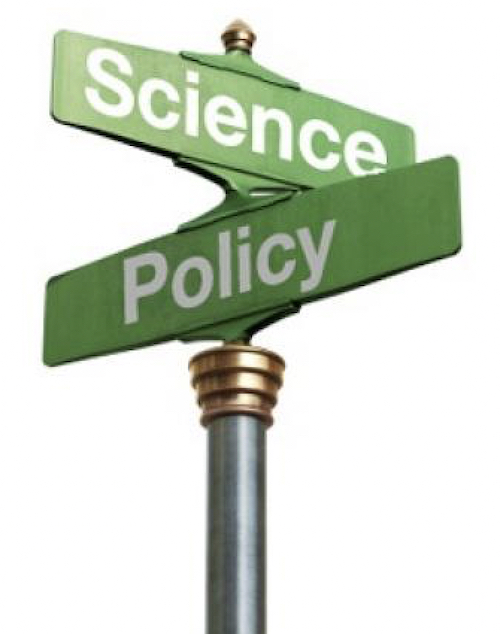Everywhere I've been in school or at work, there has been at least one session about ethics, whether it was a semester long course, a small retreat, or just a statement in passing for the company to cover their legal obligations. I'd like to think of myself as someone who wants the best for everyone he encounters, and try to live my life based on acceptance and collaboration so we can achieve common goals for the greater good. Because people come from diverse backgrounds with different upbringings, it is hard to distill ethics and values into a simple set of parameters, but I also think that in general, most people know what is right and what is wrong.
National Ethics Awareness Month
 Every year in March, people and organizations from all fields recognize National Ethics Awareness Month as a time to reflect on their ethics and discuss ways to improve on their philosophies and uphold their values. Like I said above, most people can't universally agree on everything that they consider ethical, but they can at least come to a consensus that some things are better than others, and there is a distinction between what is right and just, and what is undesirable and should be avoided in practice.
Every year in March, people and organizations from all fields recognize National Ethics Awareness Month as a time to reflect on their ethics and discuss ways to improve on their philosophies and uphold their values. Like I said above, most people can't universally agree on everything that they consider ethical, but they can at least come to a consensus that some things are better than others, and there is a distinction between what is right and just, and what is undesirable and should be avoided in practice.
Usually this is laid out in societies and religions a la the Bill of Rights (in terms of personal freedoms) or the Ten Commandments (it's probably bad to kill and steal and stuff), but even without these structures, there is a social contract that guides us on how we treat ourselves and our fellow human beings in life and in work, including business and science. This is why the National Ethics Awareness Month is not restricted to just scientists, but is also observed other industries including banking, insurance, legal professionals, and much more. This goes beyond just covering your legal obligations, because a company with integrity and morals is more likely to generate repeat business and attract new clients through a positive reputation, similar to a good mentor with a track record of scientific accomplishment driven by their core principles. And in my experience, it's just easier to be a good person because the positive energy feeds back exponentially.
Ethical Considerations in Scientific Research
When I was in graduate school, in the programs that I attended, one did a weekend retreat in which we discussed ethics in depth, while the other had us in a full-term course where we researched different aspects of ethics in science and did a presentation at the end. There are many topics that we did cover, and probably even more we did not have time to think about because every situation is different, but I think we can break it down into a few categories.
In the first instance, science is a collaborative exercise and therefore a good interpersonal environment is tantamount to success. For example, a supportive and compassionate mentor who cultivates student and postdoc success and who is willing to share resources and knowledge with colleagues and collaborators is more likely to be successful than someone who is just in it for themselves. Someone with good ethical values can inspire the people they work with to do the same when they branch out on their own, and perpetuate a collegial learning and research environment where everyone stays excited about their work, rather than being driven like a pack of mules. There are also stories of "quid pro quo" situations in which there might be some scientific nepotism as ranked authorships are granted to friends in science rather than the people who worked hard to generate and interpret the data, as well as in career advancement, something that is found throughout society and not just in the scientific realm. The ideal should be to impartially recognize merit while showing empathy to the people you work with to achieve the common research goal. There should also be considerations for equitable treatment in the sciences, both as researchers and in terms of the research cohort.
 The second consideration is professional, as science requires accomplishment through the acquisition of funding and the generation of multiple applications to stay relevant. This means that there is plenty of pressure to perform, and motives to take shortcuts that include either the outright fabrication of data or eschewing moral standards to achieve a result. Ethical considerations from a societal standpoint are also important to make sure the experiments are grounded in reason and with compassion in mind, particularly when animal models or human experimentation is required. This way, research animals will not be needlessly tortured or sacrificed for nefarious purposes, and human subjects will at least know what they're in for, unlike in some terrible incidents in our history.
The second consideration is professional, as science requires accomplishment through the acquisition of funding and the generation of multiple applications to stay relevant. This means that there is plenty of pressure to perform, and motives to take shortcuts that include either the outright fabrication of data or eschewing moral standards to achieve a result. Ethical considerations from a societal standpoint are also important to make sure the experiments are grounded in reason and with compassion in mind, particularly when animal models or human experimentation is required. This way, research animals will not be needlessly tortured or sacrificed for nefarious purposes, and human subjects will at least know what they're in for, unlike in some terrible incidents in our history.
You see stories like these where 8% of researchers have falsified or fabricated data (and that's just in the Netherlands) or every now and then when a university researcher gets found out (and there's an entire list on Wikipedia that I'm sure is nowhere close to comprehensive). Sometimes the truth might be twisted somewhat because the researcher has pressure from a funding group or an agenda to follow, and that is also unfortunate.
The goal of science should be to seek the truth through a well-designed set of experiments with thoughtful interpretation of the data corroborated by third party oversight. Because I hold my scientific colleagues in high regard, if something is fabricated or just not true (possibly by misinterpretation of data or a result that can't be reliably reproduced but was just published by happenstance), the community at large will eventually find out. The truth, and the public trust in the truth, is essential to science in society, and should be the primary consideration when weaving the lab or research group's moral fabric. Ultimately, the desired research environment is one in which where everyone is willing to seek the truth with integrity while feeling safe and supported.
Education is Fundamental
Whether is is a fun and immersive course or gathering like the ones I had in graduate school, or just a boring video presentation you have to sit through at work to make sure you don't commit a human resource violation, ensuring strong ethical standards comes down to education. This education can come from your own research, the institution or organization you work for, or a trusted colleague or mentor, but regardless, there is great benefit to reporting carefully curated and validated results, open collaboration, and transparency in promoting trust among fellow scientists and society as a whole.
So this month, and beyond, consider how you conduct yourself in research and in your interactions with other scientists. This is a time to reflect on whether you are working with the best intentions and morals in mind, and to also raise awareness to others to highlight the advantages of transparency and integrity. At the end of the day, each person has to live with themselves, and it would be nice to be proud of the person seen in the mirror.




